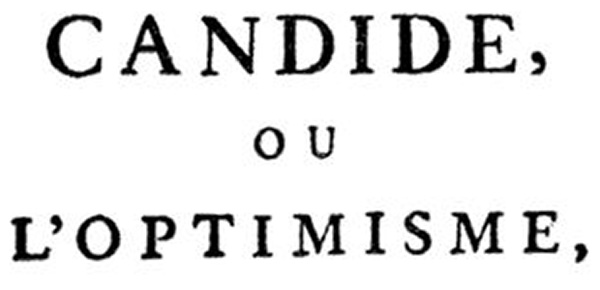We’ve all heard the Serenity Prayer at one time or another:
God, grant me the serenity to accept the things I cannot change,
The courage to change the things I can,
And the wisdom to know the difference.
The serenity to accept the things I cannot change…
I suppose what made me think of this particular turn of phrase was Yordie’s closing comments in her post on accepting the current state of Second Life for what it is:
For me, it’s a question of staying or leaving. Leaving while SL is still a functional entertainment would be a costly protest. So by elimination, I choose to stay and accept the things I cannot change.
This serene acceptance struck me, because just earlier this morning I’d read Andromeda Media Group’s post that reminded me more of a call to arms and found myself getting quite energised by it. Here’s an excerpt:
Cut the apron strings already. Second Life isn’t your bread and butter. The entire purpose of Open Simulator was to cut those strings and do something better without constantly having to ask permission from Linden Lab. Now you have the chance, and after a few years of sitting on the fence about it, you are no longer given a choice. You can either rally together and build a true Metaverse, or you can let the open source end of things stall and rot in obscurity.
This post followed several others (mainly Fleep‘s and Botgirl‘s) that called upon us to open our eyes and make our own way. To go west, as it were, in search of greener pastures.
Just last night, I was looking at the SL concurrency charts, the dramatic disappearance of so many sims across the grid over the past 8 weeks still fresh in my mind. At that moment I remembered my friend Gwen’s open question on Facebook, if SL were to disappear tomorrow, what would you do today? I had to ask:
“What do you do if you think that the downward slope will just continue? Do you (a) fight tooth and nail against the tide of rot, (b) cash out and enjoy the little time you have left just having fun, or (c) seek out greener pastures – if they even exist?”
I wrestled with myself for nearly two days (whilst on vacation no less!) on the merits of jumping into the current JIRA fray. I read as many related posts as I could and even made a list of them so I could re-read the thread of posts and comments, and review them on either my blog or here on I Rez.
But after reading and re-reading all of that debate, I found myself just oscillating between angry, frustrated and depressed. I still have the half-written review post on my desktop… just sitting there waiting to be finished. But now, I kind of see it as an utter waste of time.
I think what happens to many (me included), is that one begins to adopt a learned helplessness mentality. I was talking about this with Harvey last night – all about Seligman’s experiments in the late 60s where he’d systematically (at first) shock dogs in their various areas of their cages. At first, they just jumped around to avoid the shocks that they saw as random. Typical flight.
Then, it came to the point where they’d begin anticipating when and where the shocks would come. They coped and ended up avoiding the shocks with their little doggy brains, at least for the moment.
Eventually though, Seligman began to randomise the shocks. Over time, the dogs jumped and jumped to fight or flight but there was no escape. I’m sure they too became angry, frustrated and depressed. Finally, most of them just lied down on their bellies and took it. They had learned, like most animals do in such circumstances, that they were helpless to fight or flee it.
The courage to change the things I can…
Now, I know, LL isn’t quite as bad as that. But, we ain’t dogs either. We can open the gates and move on.
There is a rose-coloured footnote to Seligman’s experiments (from Wikipedia):
However, not all the dogs in Seligman’s experiments became helpless. Of the roughly 150 dogs in experiments in the latter half of the 1960s, about one-third did not become helpless (my emphasis), but instead managed to find a way out of the unpleasant situation despite their experience with it. The corresponding characteristic in humans has been found to correlate highly with optimism: an explanatory style that views the situation as other than personal, pervasive, or permanent. This distinction between people who adapt and those who break down under long-term psychological pressure was also studied in the 1950s in the context of brainwashing.
Hope and optimism, however, needs to be channeled properly if it is to serve you.
Admiral Jim Stockdale was the highest-ranking naval officer held as a POW during Vietnam. He was held captive for more than seven years and tortured more than 20 times. One of the few survivors of his ordeal, he became an expert on dealing with hope. One of his insights was that the POWs who imagined they’d be saved in a certain time frame, all just found their hopeless optimism deflating their spirits when the time came and went, with them still in their dreadful camps.
Interviewed years later for Jim Collin’s book Good to Great, Stockdale said something very important about facing facts, which came to be known as the Stockdale Paradox:
“You must never confuse faith that you will prevail in the end—which you can never afford to lose—with the discipline to confront the most brutal facts of your current reality, whatever they might be.”
Voltaire wrote a satirical novella called Candide: or, The Optimist, where the eponymous protagonist begins the book as a devoted follower of Pangloss, a perpetual and self-proclaimed optimist who teaches his pupils that they live in the “best of all possible worlds” and that “all is for the best”.

The plot ensues with Candide and Pangloss barely surviving what can only be described as one disaster after another. In the end of their misadventures, Pangloss dogmatically clutches to that idealism, that despite all their hapless misfortune “all is for the for the best” in the “best of all possible” words. Candide by then has had enough, and he replies in one of the last lines of the book: “”we must cultivate our garden”.
The wisdom to know the difference…
And I think that’s just it. We must cultivate our garden – wherever that garden may be. We must cultivate our garden, but we must do so with our eyes open and the right tools in our hands.
More and more, I’m reading and sharing posts that say just that, in one way or the other. All of this hand-wringing over what the powers that be should or shouldn’t do, it’s all academic. In the end, it’s up to us, as it’s always been. As it only can ever be.
No, I’m not suggesting a mass exodus either, or that anyone burn their ships upon landing on new shores. I do think, however, it is definitely time to start looking towards the horizon and to start imagining again. Yes, it’s scary, yes, we’ll have to leave some really juicy stuff behind.
But who knows, maybe what comes next might be infinitely better than what we now accept as the “best of all possible worlds”. If history has anything to teach us, it wouldn’t be the first time such a thing came to pass.

I like your thinking, Becky. I believe your ideas are the next logical extension.
Just an fyi, I’m already registered at SpotON3D, InWorldz and Kitely. Plus this morning I registered at OS Grid, OpenSim and 3rd Rock. I feel these grids are very 2007-2008 in terms of look & feel (prolly much less buggy though).
It is possible to begin looking beyond Second Life, but the obstacles include friends and that “juicy stuff” you mention.
My guess is that a lot of Second Lifers would feel the same way. But if I could get my avi looking something like the one i have, get a few nice outfits then I bet I could get some of my friends to come take a look at a new grid.
The economics of a move to a new grid are quite enticing.
I choose the B option. My obstacle for leaving is that it took me such a friggin’ effort to learn what I have in the last year that I can’t face anything new now.
If SL were to disappear tomorrow, I’d find plenty to do and it looks like many of the people I knew six months ago have already moved on.
I’m one of those that haven’t built or made things so it’s different for us and I’ll be watching to see where everyone goes. I don’t mind the 2007-2008 look so much; I’d just like to somewhere with fewer rude, sociopaths with atrocious spelling.
This whole metaverse thing seems very important for the future and hopefully the creative, intelligent people will move forward with it. It isn’t going to be easy. I don’t struggle with it because I’m doing so with being a change agent in real life. It may not be much of a consolation but this sort of thing is going on in just about every institution, etc., everywhere.
These are useful skills that we’re learning. We just need to take good care of ourselves as we deal.